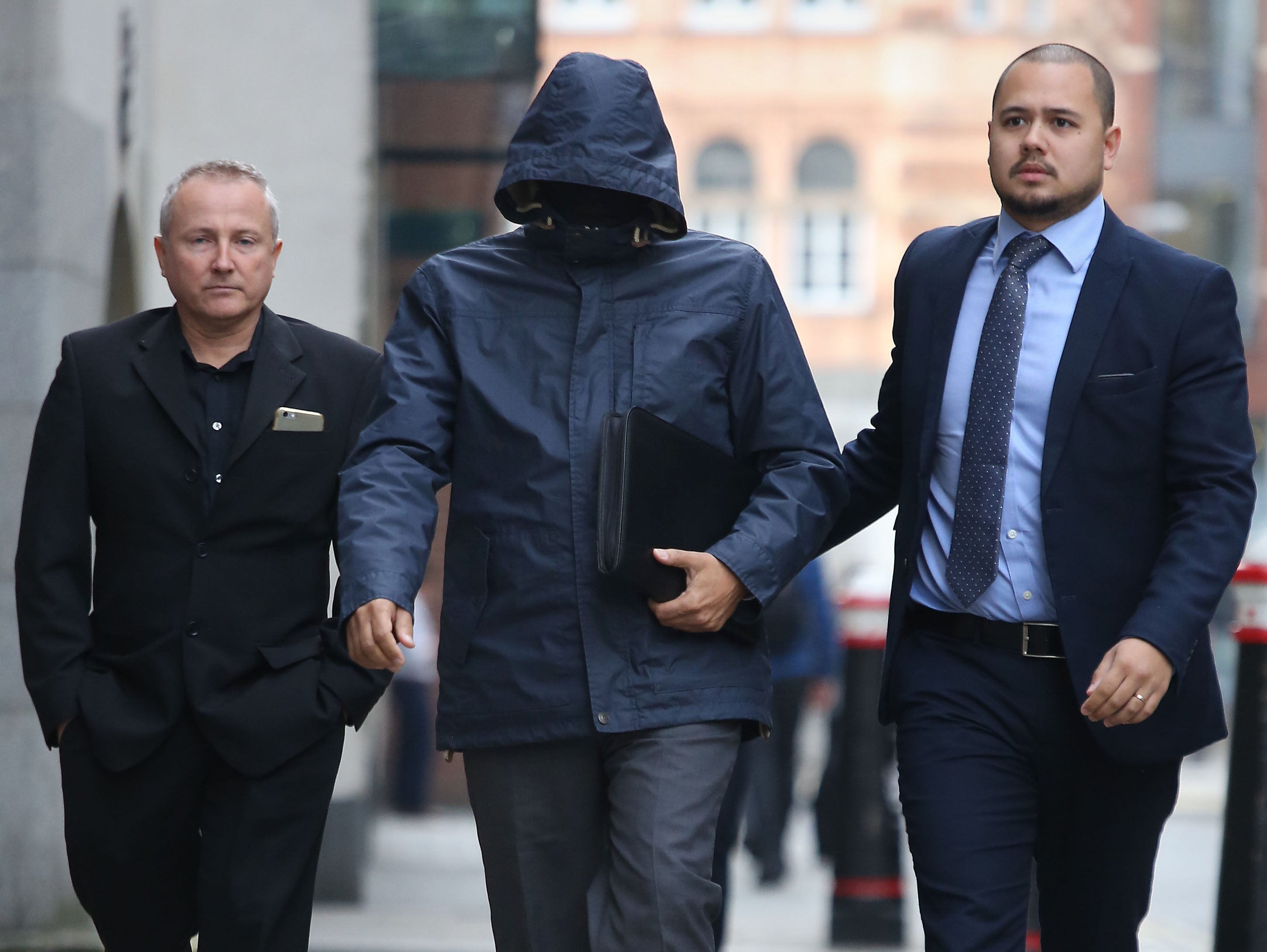
Undercover journalist Mazher Mahmood’s sting exposing an X Factor judge’s alleged involvement in a drugs deal was his first story for the Sun newspaper and he was keen “to make his mark”, a court has heard.
Mahmood, 53, is on trial alongside his driver Alan Smith, 67, for conspiracy to pervert the course of justice by altering Smith’s statement to police ahead of singer Tulisa Contostavlos’s pre-trial hearing over drug dealing charges.
The case against Contostavlos was the direct result of a sting by Mahmood in which he posed as fake film producer Samir Khan looking to cast a “bad girl” in a new movie, the Old Bailey heard.
Contostavlos, said to be an aspiring actress, was told in meetings with Mahmood, posing as Khan, that she was being considered for the lead role in the film opposite Leonardo DiCaprio and that it could be Oscar worthy, the jury was told.
She allegedly arranged for the journalist to be sold half an ounce of cocaine by one of her contacts for £800 after he asked if she could get hold of the drug for him, the court heard.
Mahmood left the News of the World after it was closed down in 2011, joining the Sun on 1 December 2012. He began his investigation into Contostavlos the same month, the jury was told, with the story running in the Sun on Sunday on 2 June 2013.
Prosecutor Sarah Forshaw QC said: “His [Mahmood’s] Tulisa operation must have been one of the first for his new employers, if not the first. He would have wanted to make his mark and bring in a big story.”
She added: “He liked to be thought of as the master of subterfuge, exposing villains in their villainy.”
The case against Contostavlos was dropped in 2014 after Mahmood was accused by the trial judge of tampering with evidence, the jury heard.
Prosecutors said Mahmood had conspired with Smith to change the latter’s statement to police to remove a reference to Contostavlos having seemed “anti-drugs” that would have helped her defence.
Smith had heard the singer telling two friends about a family member who was an addict as he drove them home after a meeting with Mahmood, posing as Khan, the court heard.
“Mr Smith told the officer that Miss Contostavlos had seemed really negative about cocaine and expressed her disapproval of drugs,” said Forshaw.
She said Mahmood and Smith changed the statement to protect the journalist’s reputation as “the king of sting”.
“He knew that his methods would be on trial and if he had entrapped someone to do what they ordinarily wouldn’t do there was a risk that the trial would be stayed and the evidence would be ruled inadmissible and the trial of Tulisa Contostavlos might fail,” she said.
“Consequently Mr Mahmood would be exposed – not as a swashbuckling hero but as a trickster who lured people into criminal activity so he could destroy them all for a story.”
Both defendants have declined to give evidence in their defence.
Forshaw said in her closing speech: “If they were innocent men with nothing to hide, wouldn’t they be shouting it from the rooftops?”
She told jurors: “When you put them all together, they altogether lead you to the compelling inference that these two men put their heads together to change that statement – a compelling inference that demands an explanation and you have had none.”
Smith’s initial statement to police which included the pop star’s anti-drugs comments had posed a problem for the journalist, the court heard.
And so Miss Contostavlos’s disapproval of hard drugs was “airbrushed out” after Smith emailed his statement to Mahmood, Ms Forshaw said.
She added: “You may think these men have concluded their best chance of being found not guilty is to say nothing.”
Mahmood has previously denied being an “agent provocateur”, telling police: “My investigation presented a snapshot of what she [Contostavlos] was doing anyway.”
The prosecution told jurors that Smith had sent Mahmood his draft statement by email and that the pair had exchanged 11 texts and four phone calls shortly before Smith called police to change the statement.
She said Mahmood told the pre-trial hearing into the case against Contostavlos that he had never spoken to Smith about the statement or drugs.
But she said he had acknowledged that a conversation had taken place between the two of them and quoted him during the collapsed Contostavlos trial as saying: “It had something to do with drugs.
“There was a conversation. He said about drugs. He didn’t go into specifics about the issue.”
Forshaw said a note found on Mahmood’s iPad by an expert showed a drafted police statement that differed from the one he had first issued.
It said: “I received an email from Smith simply attaching his draft statement taken on the phone.
“I no longer have the email as I have deleted it. I didn’t read the attachment but it reminded me to ring him [Smith] about another investigation I was looking into.
“I reminded him to send the statement to the lawyers.”
Mahmood, of Purley, south London, and Smith, from Dereham, Norfolk, deny conspiring together to pervert the course of justice between June 22 and July 22 2014.
Email pged@pressgazette.co.uk to point out mistakes, provide story tips or send in a letter for publication on our "Letters Page" blog
